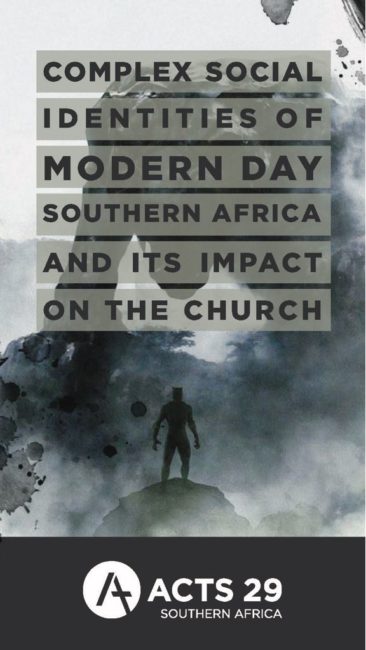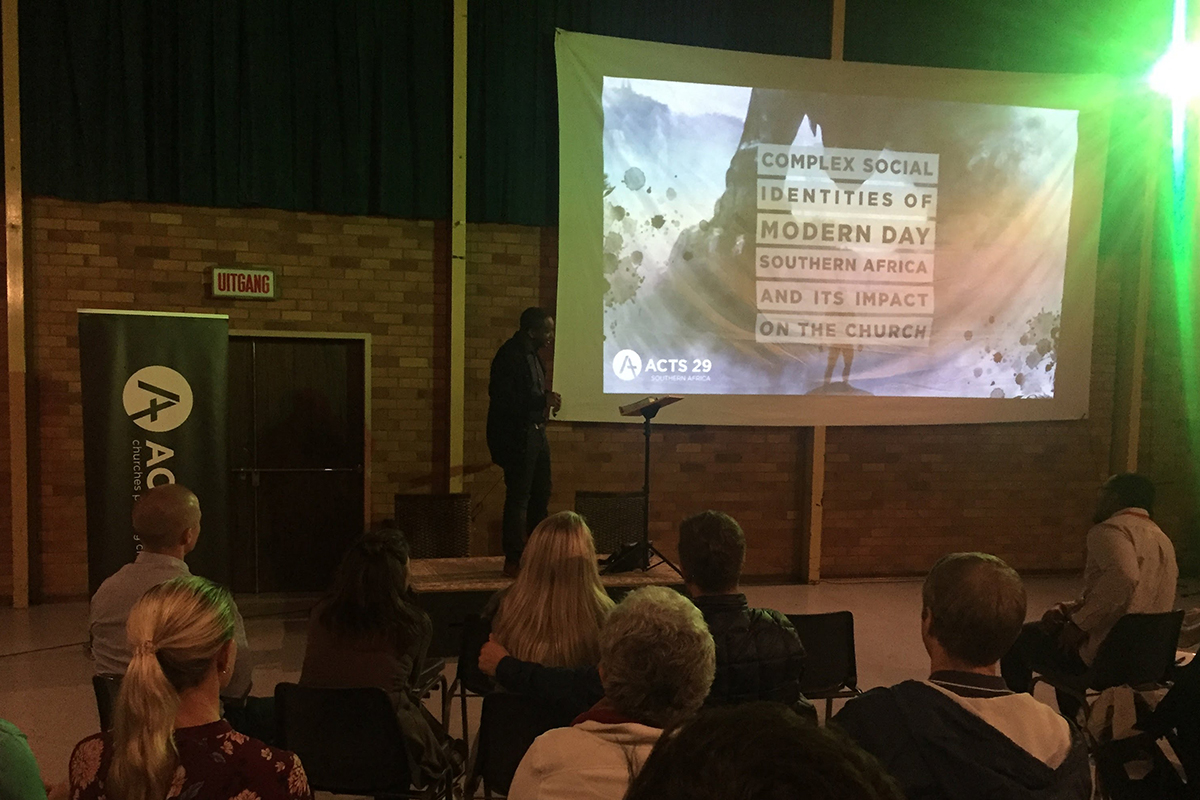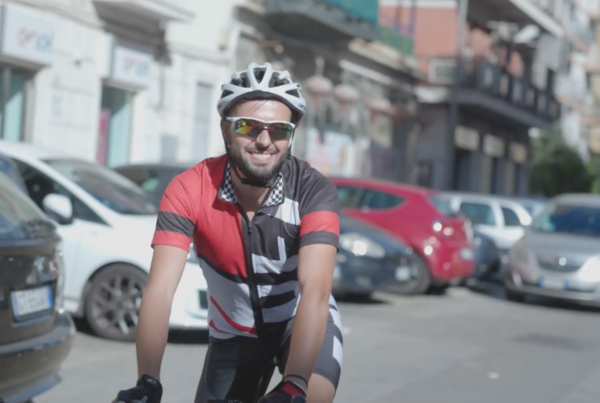 More Than…
More Than…
On Wednesday 11 April 2018, I spent “An Evening with Acts 29” at the New Hope School in Pretoria where a crowd gathered to explore the complex social identities of modern-day Southern Africa and their impact on the church.
Until Wednesday, I had felt that I understood why the movie Black Panther was deemed such a big deal by my black brothers and sisters. It was much more than just a superhero movie. However, with the following words from guest speaker Batanayi (Bat) Manyika – “when we engage in life without hearing other’s stories, what we are effectively doing, is we are muting their existence” – I realised another level of conscious comprehension. I say ‘conscious’ comprehension because I believe that, subconsciously, we are all too aware of our tendency to be exclusive and selective about who, or what, we lend our ears to (whether we play out this tendency as individuals, communities or as a church).
I loved the Black Panther movie. Wakanda (and its people) felt like a peaceful, inclusive place. It felt like a place to which I would definitely accept an invitation. As per Bat, this box office hit illustrated what unsuppressed, inclusive and empowered potential could look like. Bat went on to explain that the movie Black Panther was a watershed moment for many, especially for those whose narrative hadn’t been heard in years.
As a teller of other people’s stories, I am deeply aware that I am surrounded by more compelling narratives than there are fish in the sea. If one chooses to hit the mute button on one of them, a very clear message is sent – either I do not want to be disturbed by ‘the noise’, or I’m not in the slightest bit interested in what comes next. Apply this to human interaction, and it borders on cruelty.
Since Wednesday, I have been struggling to uncomplicate the layers of the evening’s topic. I’m a simple creature, but usually I manage to translate the heavy stuff into easily digestible, bite-size pieces. This time, however, I’m sitting with the depth and intricacy of the layers long after the talk and I finally conclude that I’m overthinking things. In my bid to simplify, I decided to focus on the key messages that followed me home.
Complex social identities – more than a single identity
I really encourage you to listen to Bat’s full podcast. He has served in church leadership in the UK, Zimbabwe and South Africa. He holds degrees in theology from Wales and Stellenbosch, is employed by the South African Theological Seminary (SATS) as an academic and is currently working on a PhD in the New Testament through SATS. He now lives in France with his wife. Bat was conceived in the UK and born in Zimbabwe. He speaks many languages and has an incredibly diverse taste in food. He also reads a lot. Why am I telling you all this? Well, like you and me, Bat has a complex social identity – a concept he unwrapped a little for us last Wednesday. And just like you and me, there are many compartments to who Bat is: he is a husband, student, academic, speaker, theologian, linguist and more. We all have more than a single social identity.
Modern day southern Africa – more than a single story
Our own personal narratives are not confined to what happens in our immediate space. In the past year, I have engaged with people from Malawi, Ghana, Zimbabwe, Zambia, Congo, Botswana and probably more… Last year, I was rescued by a man from Zimbabwe when my tyre burst on the highway. If he hadn’t intervened, my narrative could have changed its course. Just last Wednesday, I attended a talk by a Zimbabwean theologian. On Sundays, I attend Rooted Fellowship – a transcultural church that meets at the New Hope School in an urban suburban area of Pretoria.
Our lives, irrespective of demarcated borders, will still intertwine. Beyond physical borders, there are other boundaries in place that limit or prohibit our capacity to build relationships, such as language, prejudice, preconceptions and misconceptions etc.
A few years back I watched a fascinating TED talk, The danger of a single story, by Nigerian novelist Chimamanda Ngozi Adichie. TED’s introduction to her talk (taken from the TED website) states that she “warns that if we hear only a single story about another person or country, we risk a critical misunderstanding.” If you have another twenty minutes to spare, it really is worth watching how she eloquently points out how easily we stereotype, and how wrong we can be when we only use half of the story to form our ‘fact’. Chimamanda concludes her talk by saying that “I would like to end with this thought: That when we reject the single story, when we realise that there never is a single story about any place, we regain a kind of paradise.”
Impact on the church – more than a safe space
Bat mentioned that a common criticism that is directed at Christians is that we are good at telling people what to believe but not that good at engaging. I think we often feel that others should meet us where we are rather than feeling called to take a step towards them. Why? Is it because of a fear of discomfort? Pride? Stubbornness? Shyness?
“How does being part of the church make our actions different to (or distinct from) the many other incredible Southern African people out there?”
We can listen, talk, learn a language, engage, love and serve but as the complex Southern Africans that we are, we need to ask ourselves: how does being part of the church make our actions different to (or distinct from) the many other incredible Southern African people out there? My final paraphrasing of Bat (extended through these final paragraphs; my apologies for the many ‘borrowings’, Bat!) is that in the Christian faith, our ticket to redemption is believing and the central pillar of our faith is Christ. We should first shout: “WE ARE UNITED!” before we tackle the other subjects. Galatians 3:28 reminds us that “There is neither Jew nor Gentile, neither slave nor free, nor is there male and female, for you are all one in Christ Jesus.”
Unity does not mean conformity. Unity means strength, as well as living side-by-side, in diversity. The church must be the place where we are able to discuss unsettling topics: the place to which we can bring all of our complex identities and diverse narratives while remaining focused on Christ. In South Africa, we are still coming to grips with life post-apartheid: we are still wrestling with the uncomfortable topics of racism, colonialism, crime, poverty, privilege, land redistribution and war… But tackle them, we should!
My biggest take-away from last Wednesday is that our unity, or oneness, as a church should affect transformation. Affecting transformation means that we need to be intentional in our approach: “Let each of you look not only to his own interests, but also to the interests of others” (Philippians 2:4). As members of the church, the next time we ask “Who are you?”, let’s turn up the volume. Let’s more than scratch the surface; let’s enjoy the beauty of really getting to know one another’s stories.
Chrissi Maria










